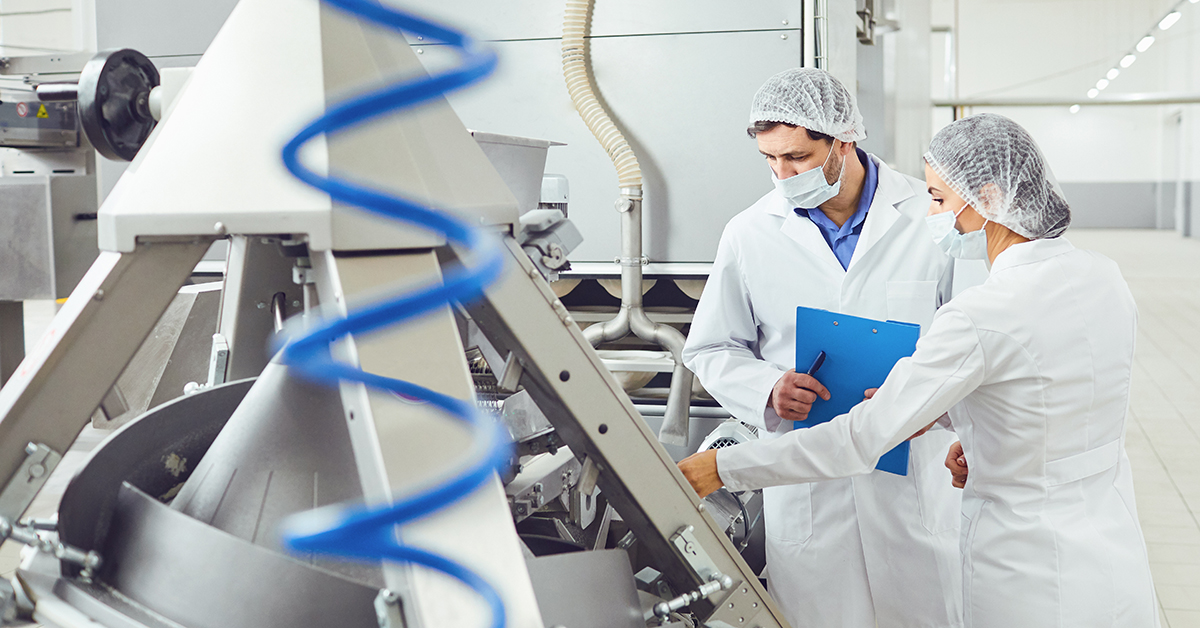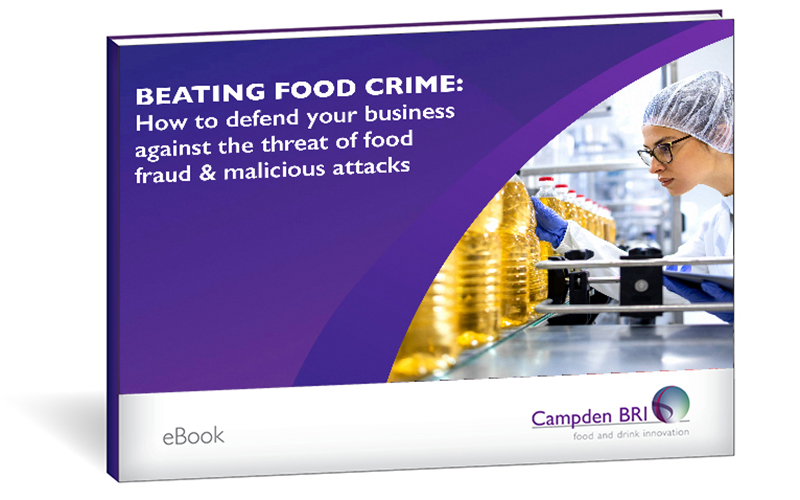
How to defend your business against food fraud
7 May 2024 | Richard Leathers, Global Quality Lead
Food fraud is a significant threat to any food or drink business operator. It is defined by the Global Food Safety Initiative (GFSI) as “the deliberate and intentional substitution, addition, tampering or misrepresentation of food, food ingredients or food packaging, labelling, product information or false or misleading statements made about a product for economic gain that could impact consumer health”.
Whether or not they are caused deliberately, there are many food safety risks associated with food fraud. Plus, even without this element, they can have huge reputational and financial costs for implicated businesses and brands.
Download our FREE Beating Food Crime eBook today!
Win the fight against food crime – successfully defend your business against food fraud and malicious attacks.

Identifying food fraud risks
Food and drink raw materials, ingredients and products susceptible to food fraud predominantly include those that are high value and / or where cost savings or additional profit can be made through substitution or adulteration them. Typical examples include olive oil, fish, organic products, grains, honey, coffee, tea, spices, wine, certain fruit juices, milk and meat.
Challenging times are when we must be most aware of potential triggers and drivers for risks such as adulteration and other fraudulent activities that may affect our supply chains.
Risks can emerge and change in line with cost and availability pressure (triggered by e.g. severe weather events, poor harvests, conflict, price increases or geopolitical factors), as well as new ways that fraudsters come up with to both commit food fraud and evade detection. As such, your management plans, monitoring / testing plans and control measures must be regularly reviewed and updated in line with the changing landscape.
It is important to conduct horizon scanning and take action early when a threat is identified or anticipated – review your food safety management system and get plans put in place so that you are confident that you have addressed the threat and can address changing threats.
Risk assessments will determine your monitoring plan, which may include the sampling and analysis of raw materials, packaging and ingredients to confirm that certain supply chain steps and associated controls are working effectively, and to rule out potential food fraud.
Sampling and testing plans should be based on systematic risk assessments that are regularly reviewed and reevaluated. It is important to know what you are testing for and why, and how to interpret results and make decisions. You will also need to adapt your testing and auditing plans based on information from horizon scanning, such as emerging risks and changes to the pressures affecting your supply chains.

Managing risks
In response to the threat of food fraud, the food industry is always adapting to keep pace. There exist a number of tools, such as guidance documents (including PAS 96:2017 ), food safety standards and horizon scanning sources that can help individual businesses to effectively manage the risk of food fraud. This document is under review in 2024.
Successful risk management of issues within the supply chain relies on identification of issues with raw materials of potential concern and supplier assurance (e.g. confirming that suppliers correctly manage food safety, quality, legality and authenticity issues).
To stay ahead of potential food fraud, as well as reviewing your vulnerability assessment plan annually (including the associated mitigation strategy), you also need to do this whenever there is:
- A change in a raw material or its supplier;
- Emergence of a new risk (e.g. known adulteration of an ingredient, or developments in scientific information associated with the authenticity of a supplier site’s products or raw materials);
- Following a significant product safety incident (e.g. a product recall) where the authenticity of a supplier site’s products or raw materials is implicated.
Due to the overlap between food fraud and food defence issues, and the importance of a holistic food safety management system in which nothing is missed, it is essential to evaluate both economically motivated fraud (food fraud) and malicious attacks (food defence). Preferably these will be assessed together for the most effective approach. See our Beating Food Crime eBook more information on threat and vulnerability assessments, and the control measures you need to protect your business.
In the mitigation strategy that you develop (from characterising the food defence threats and supply chain vulnerabilities from which your business may be at risk), you will need to ensure that there are several control measures in place to target the major risks. For example, for materials with a high likelihood of food fraud, a full suite of controls is often necessary (to ensure redundancy if an individual control measure were to fail).
How we can help you defend your business against food fraud
We provide hands on support for businesses who want to better prepare for and address the threat of food fraud, malicious attacks and broader food crime. We can help you to implement, validate and verify effective food safety management systems to protect your business.
Alongside this practical support, we provide a wide range of relevant training and can also analyse your products and materials to test for potential adulteration and other food fraud.
We help businesses to identify emerging risks and trends through horizon scanning, and provide support with devising and adapting your management systems and monitoring plans based on the changing risk landscape.

About Richard Leathers
Richard Leathers joined Campden BRI in September 2011, and has worked in the food industry for 4 decades.
Richard started working with Dairy Crest and subsequently worked for both Heinz, Unilever, Best Foods and Kanes Foods. Working in the areas of HACCP and Quality Management Systems, Richard also has experience within the fresh produce sector, as well as analysis systems in the milling / baking areas, and is a BRCGS qualified lead auditor.
Richard has contributed to several publications and guidelines, including those for TACCP, VACCP and HACCP / Risk Evaluation and is also trained at advanced level by EHEDG (European Hygienic Engineering Design Group).
Download our FREE ‘Beating Food Crime’ eBook today!
Win the fight against food crime – successfully defend your business against food fraud and malicious attacks.
How can we help?
If you’d like to find out more about how we can support your food safety and quality management systems, visit our service pages.






